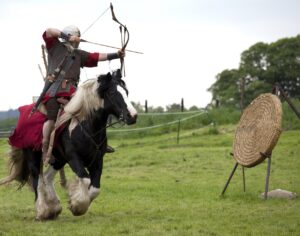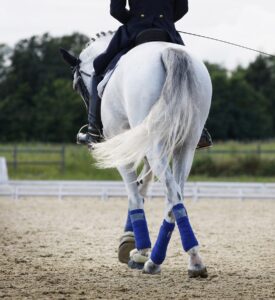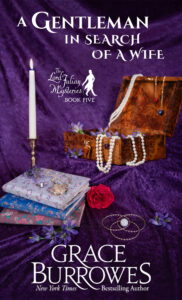 I am putting this blog on hiatus for most of July in part because in this end of June/early July transition, I scheduled myself back-to-back weeks of (for me) high activity. This past week was five straight days of riding camp (kids on ponies, what could be more wonderful?), and next week I will be a camper on a pony. (We’d better get to paint rocks, too, just sayin’).
I am putting this blog on hiatus for most of July in part because in this end of June/early July transition, I scheduled myself back-to-back weeks of (for me) high activity. This past week was five straight days of riding camp (kids on ponies, what could be more wonderful?), and next week I will be a camper on a pony. (We’d better get to paint rocks, too, just sayin’).
With a few other logistical planets refusing to conveniently leave or slow their orbits, I am in the middle of what I call a compression phrase. Life should ease up and simplify in a week or two, but I also know that I take longer to bounce back from exertion of any kind than I used to. If I was up at 5 am for nine out of ten consecutive mornings, I will need more than one day to get back to more and better sleep.
 If I was out in the heat for nine out of ten days, I will be heat-zonked for more than a day, no matter how much I hydrate, use sun screen, and wear a hat. If my step count averaged 15k per day… and so forth.
If I was out in the heat for nine out of ten days, I will be heat-zonked for more than a day, no matter how much I hydrate, use sun screen, and wear a hat. If my step count averaged 15k per day… and so forth.
But just now today–the one day out of ten when I don’t have to be anywhere or do much of anything–I am stockpiling as much rest and refreshment as I can. This has involved a day of solitude (so far, fingers crossed…). A day to stay home and not set bottom in driver’s seat or foot off home turf. A day when I can wear my jammies and flip-flops until noon (so stylish with my writing-day compression socks). A day when I can spend hours just reading my current Lord Julian work in progress (still have to write the denouement). I can drink three cups of de-caf tea to slowly, slowly get my engine turning over as I start the day at the computer.
 By way of reward for a week well done and another challenging week on deck, I have busted out my stash of special occasion Highland Chocolatier’s Sao Tome dark chocolate truffles. This evening, I will probably go on a deadheading spree among the daisies, roses, and cone flowers. I should scrub the floors soon–nothing like humidity for making dirt stick to floors–but today is not that day. (Tomorrow might be.)
By way of reward for a week well done and another challenging week on deck, I have busted out my stash of special occasion Highland Chocolatier’s Sao Tome dark chocolate truffles. This evening, I will probably go on a deadheading spree among the daisies, roses, and cone flowers. I should scrub the floors soon–nothing like humidity for making dirt stick to floors–but today is not that day. (Tomorrow might be.)
 I could use several of these re-charging days back to back, but right now, I only get the one, and I am loving it. When I report for duty early tomorrow morning (duty I signed up for, which involves getting breakfast served to a bunch of horses), I will do so fortified by my version of a lovely day.
I could use several of these re-charging days back to back, but right now, I only get the one, and I am loving it. When I report for duty early tomorrow morning (duty I signed up for, which involves getting breakfast served to a bunch of horses), I will do so fortified by my version of a lovely day.
What is your version of a lovely, re-charging day after enduring a challenging schedule? To one commenter, I’ll send $100 Vera Bradley e-gift card.
PS: Look for my next blog post around July 20th or 27th. I’ll post about it on social and in my news feed, and send out a newsletter thereabouts. Until then, happy summer, happy reading, and may you all enjoy plenty of wonderful days!







 I’m coming down the home stretch with the first draft of
I’m coming down the home stretch with the first draft of 


 I know not why, but for me the month of June often brings an extended case of the grumpy-blahs. This makes no sense. As a kid, school was my personal purgatory, and June should have been the high point of the year. I should be in the dumps come September if ancient history is still driving my year, but instead I tend to perk up when the weather cools off.
I know not why, but for me the month of June often brings an extended case of the grumpy-blahs. This makes no sense. As a kid, school was my personal purgatory, and June should have been the high point of the year. I should be in the dumps come September if ancient history is still driving my year, but instead I tend to perk up when the weather cools off. And yet, these annual clouds notwithstanding, there are also aspects of June that I find absolutely delightful. I have been purposely focusing on these glories lately in hopes of beating the blahs sooner rather than later.
And yet, these annual clouds notwithstanding, there are also aspects of June that I find absolutely delightful. I have been purposely focusing on these glories lately in hopes of beating the blahs sooner rather than later. I’m also reassured by the sheer tenacity of weeds. No matter how often I pull ’em up, and how many I toss on the compost heap, the weeds never give up. Blessed are the weeds.
I’m also reassured by the sheer tenacity of weeds. No matter how often I pull ’em up, and how many I toss on the compost heap, the weeds never give up. Blessed are the weeds. The best showers of the year. Very little in the way of hedonistic pleasure compares with a cool shower at the end of a hot day, especially if I have been doing yard work or barn work. That sensation, of finally, finally getting cool and clean is utter, absolute bliss.
The best showers of the year. Very little in the way of hedonistic pleasure compares with a cool shower at the end of a hot day, especially if I have been doing yard work or barn work. That sensation, of finally, finally getting cool and clean is utter, absolute bliss. I am re-reading
I am re-reading  I also happen to be reading
I also happen to be reading  All three types of conversations can start with, “Thank heavens it’s Friday!” but the supercommunicator will quickly decipher whether what’s sought is assistance, reflective listening, or emotional engagement.
All three types of conversations can start with, “Thank heavens it’s Friday!” but the supercommunicator will quickly decipher whether what’s sought is assistance, reflective listening, or emotional engagement. When I think about Gilly and Christian, and what they earned by listening to each other, being brave, taking time, and patiently clarifying signals and subtext, I am inspired to try harder at this easy-to-talk-to business. When I run across a gifted listener, my whole soul is more peaceful and I end the conversation feeling like a more interesting, worthwhile, and articulate version of myself.
When I think about Gilly and Christian, and what they earned by listening to each other, being brave, taking time, and patiently clarifying signals and subtext, I am inspired to try harder at this easy-to-talk-to business. When I run across a gifted listener, my whole soul is more peaceful and I end the conversation feeling like a more interesting, worthwhile, and articulate version of myself. I spent my morning volunteering at the barn today, and the weather was exquisite. By early afternoon, I was ready to go home and do jig saw puzzles or maybe think up a blog post, or just enjoy the glorious weather. I noticed, though, that our program director was sparkling about the barn aisle, arranging flowers, positioning a poster board on a wrought iron stand, assembling goodies, and generally preparing for Something.
I spent my morning volunteering at the barn today, and the weather was exquisite. By early afternoon, I was ready to go home and do jig saw puzzles or maybe think up a blog post, or just enjoy the glorious weather. I noticed, though, that our program director was sparkling about the barn aisle, arranging flowers, positioning a poster board on a wrought iron stand, assembling goodies, and generally preparing for Something. She brought an entourage of family and friends, and a good time was had by all. I stayed for the part where she was driven around the farm in a two-wheeled one-horse cart. She even took the reins for a few moments herself. I don’t know if she ended up in the saddle, but the festivities looked headed in that direction.
She brought an entourage of family and friends, and a good time was had by all. I stayed for the part where she was driven around the farm in a two-wheeled one-horse cart. She even took the reins for a few moments herself. I don’t know if she ended up in the saddle, but the festivities looked headed in that direction. But then I got to thinking about the dreams of mine that already have come true. I passed the bar and was admitted to the practice of law. Lordy, that took a lot of work and years of studying, but I got to be a lawyer, and in a lot of ways, that was a good fit for my abilities.
But then I got to thinking about the dreams of mine that already have come true. I passed the bar and was admitted to the practice of law. Lordy, that took a lot of work and years of studying, but I got to be a lawyer, and in a lot of ways, that was a good fit for my abilities. I have traveled to marvelous far-off lands, and once, in 2016, I even traveled with a group of readers. I rode on the beach in Ireland, and next time I have that good fortune, I am going to canter.
I have traveled to marvelous far-off lands, and once, in 2016, I even traveled with a group of readers. I rode on the beach in Ireland, and next time I have that good fortune, I am going to canter. All of which is to say, that I am profoundly grateful to each of you, who read my books, chime in on my blogs, and make it possible for me to do this published author gig with joy and meaning. A dream comes true for me every day I get out of bed and sit down to write.
All of which is to say, that I am profoundly grateful to each of you, who read my books, chime in on my blogs, and make it possible for me to do this published author gig with joy and meaning. A dream comes true for me every day I get out of bed and sit down to write. In the course of our discussion, Nick mentioned that we have
In the course of our discussion, Nick mentioned that we have  horse to do the movement–that anything else, like the impact of my shouty riding on our relationship, the cat scampering along the mounting ramp, the horse’s increasing frustration with me–could not penetrate.
horse to do the movement–that anything else, like the impact of my shouty riding on our relationship, the cat scampering along the mounting ramp, the horse’s increasing frustration with me–could not penetrate. Relationships are probably better for liberal doses of bottom-up thinking. The early stages of vacation planning, putting together a menu, creativity in general… all benefit from strong bottom-up focus. Lord Julian, by contrast, needs both top-down and bottom-up attention to solve his mysteries.
Relationships are probably better for liberal doses of bottom-up thinking. The early stages of vacation planning, putting together a menu, creativity in general… all benefit from strong bottom-up focus. Lord Julian, by contrast, needs both top-down and bottom-up attention to solve his mysteries. unrelenting discipline.
unrelenting discipline. I recently finished reading The Man Who Broke Napoleon’s Codes, by Mark Urban. This very readable book recounts the progress of one Major George Scovell both as Wellington battled his way across Spain, and as George battled something called the Great Paris Cipher (code) while serving under Wellington as an assistant quartermaster. Wellington won in large part because George won first, but His Grace was parsimonious in praising Scovell. When peace meant Scovell fell on hard times, Wellington apparently did not even acknowledge his cryptographer’s one plea to his old boss for help.
I recently finished reading The Man Who Broke Napoleon’s Codes, by Mark Urban. This very readable book recounts the progress of one Major George Scovell both as Wellington battled his way across Spain, and as George battled something called the Great Paris Cipher (code) while serving under Wellington as an assistant quartermaster. Wellington won in large part because George won first, but His Grace was parsimonious in praising Scovell. When peace meant Scovell fell on hard times, Wellington apparently did not even acknowledge his cryptographer’s one plea to his old boss for help. Wellington’s argument was that elevating men who had no connection “with the land,” (meaning ownership of real property), would result in revolution. Exhibit one, of course, was France. Give these base-born guys a taste for power and authority, inure them to violence, and next thing you know, the scum of earth, as Wellington referred to his largely Scottish and Irish recruits, will be breaking down the palace gates.
Wellington’s argument was that elevating men who had no connection “with the land,” (meaning ownership of real property), would result in revolution. Exhibit one, of course, was France. Give these base-born guys a taste for power and authority, inure them to violence, and next thing you know, the scum of earth, as Wellington referred to his largely Scottish and Irish recruits, will be breaking down the palace gates.
 I was put in mind this week of a scene from one of the Beethoven bio-pics.
I was put in mind this week of a scene from one of the Beethoven bio-pics.  And you cannot watch that scene without your heart breaking for old Ludwig. He was a difficult uncle to his nephew, ungracious to some of his patrons, a demanding friend, tight-fisted, and cranky, but by god, he earned that applause. Precisely because he was difficult, lonely, and insecure, he deserved to take to heart every bravo and “Bis!”
And you cannot watch that scene without your heart breaking for old Ludwig. He was a difficult uncle to his nephew, ungracious to some of his patrons, a demanding friend, tight-fisted, and cranky, but by god, he earned that applause. Precisely because he was difficult, lonely, and insecure, he deserved to take to heart every bravo and “Bis!” I understand that we should remember hurts and harms, the better to guard against them happening to us again. That’s sensible, within limits, but where is it decreed that we should brush aside accolades, minimize them, and even mistrust them? Invariably, when I am having a bad writing day, and my book hates me, and the whole manuscript is the worst draft of anything ever to ooze out of the fictional swamp, a reader will email me out of the blue: I have read everything you’ve written and please don’t stop writing. I re-read your oldies until they fall apart in my hands and then I buy a new copy.
I understand that we should remember hurts and harms, the better to guard against them happening to us again. That’s sensible, within limits, but where is it decreed that we should brush aside accolades, minimize them, and even mistrust them? Invariably, when I am having a bad writing day, and my book hates me, and the whole manuscript is the worst draft of anything ever to ooze out of the fictional swamp, a reader will email me out of the blue: I have read everything you’ve written and please don’t stop writing. I re-read your oldies until they fall apart in my hands and then I buy a new copy. I woke up Tuesday morning in an inordinately good mood. The alarm wasn’t due to go off for an hour, I’d slept badly, and my right ankle was hurting, but my outlook was rosy. The sound that had awakened me was my upstairs cat, Augustus, purring next to my pillow. How could I not love that guy?
I woke up Tuesday morning in an inordinately good mood. The alarm wasn’t due to go off for an hour, I’d slept badly, and my right ankle was hurting, but my outlook was rosy. The sound that had awakened me was my upstairs cat, Augustus, purring next to my pillow. How could I not love that guy? But an increasing body of
But an increasing body of  As Wellington’s army advanced across Spain, his night pickets were always careful to keep some grazing horses nearby. The soldiers on guard duty could not hear French snipers skulking in the undergrowth, but the horses could. The soldiers knew that if the horses stopped nom-nomming at the grass, that was a change in the soundscape even a sleepy private would notice.
As Wellington’s army advanced across Spain, his night pickets were always careful to keep some grazing horses nearby. The soldiers on guard duty could not hear French snipers skulking in the undergrowth, but the horses could. The soldiers knew that if the horses stopped nom-nomming at the grass, that was a change in the soundscape even a sleepy private would notice. I know some things about myself.
I know some things about myself. the distractions, have a nice chat, and get back to my pothering, but if I plan poorly, and schedule myself five or six days out of seven tearing around to appointments, errands, and obligations, I pay for it.
the distractions, have a nice chat, and get back to my pothering, but if I plan poorly, and schedule myself five or six days out of seven tearing around to appointments, errands, and obligations, I pay for it. rested, less anxious, and not as grumpy (most of the time).
rested, less anxious, and not as grumpy (most of the time).